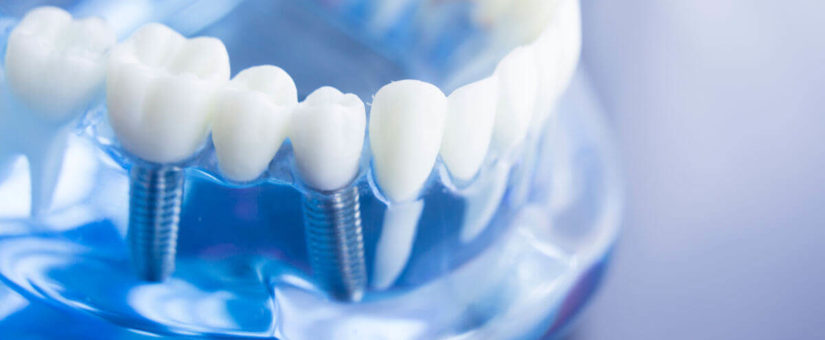
Save Money on Dental Implants
In dental implant surgery, the dentist replaces your tooth roots with screw-like posts and replaces missing or damaged teeth. They will place artificial teeth that function and looks almost like real teeth. Dental implant surgery can work as an alternative to bridgework or dentures tooth replacement.
Your dentist must perform dental implant surgery based on the condition of your jawbone and the type of implant. There are several dental implant surgery procedures. A major advantage of implants is that they provide strong support for new teeth. As this bone requires time to heal, the process can take several months.
When You Need Dental Implants
In the surgery, your dentist places dental implants in your jawbone that serve as your missing teeth’s root. Because the titanium present in the implants combines with your jawbone, this stops your implant from causing bone damage, making noise, and slipping. Materials will also not decay, unlike dentures or bridgework. Normally dental implants will work best for you if you:
- If you don’t smoke tobacco
- If you are ready to commit some months to the process
- If you want to improve your speech
- If you are do not want or are unable to wear dentures
- If you don’t have any health conditions that will affect the healing process of your bone.
- If you have healthy oral tissues
- If you have enough bone to protect the implants
- If you have a full-grown jawbone
- If you have one or more missing teeth
Advantages of Dental Implants
Dental implants have a lot of advantages, such as:
1. Improved Appearance
Dental implants feel amazing and look exactly like your original teeth. These implants are constructed in a way to fuse with your bone, making them permanent.
2. Improved Speech
When the dentures are poorly fitted, your teeth may slip in your mouth, which can cause slurred speech and mumbling. With dental implants, you do not have to care about the slipping of the teeth.
3. Improved Comfort
As these implants become part of your mouth, they eliminate every discomfort that you may face with removable dentures.
4. Easier Eating
With sliding dentures, you may find it hard to chew, whereas dental implants work like your natural teeth. This allows you to chew any food without pain and with confidence.
5. Improved Self-Esteem
Dental implants will offer a perfect smile, and you will feel better about yourself.
6. Improved Oral Health
Unlike a tooth-supported bridge, in dental implants, you do not have to reduce any of your teeth. In this method, your surrounding teeth do not need reshaping to support the false teeth. Your teeth will remain intact, to improve long-term oral health. You can maintain oral hygiene as individual teeth are placed so that you get access in between.
7. Durability
Implants can last for many years as these are durable. If you take care of them properly, your implants can also last for a lifetime.
8. Convenience
Removable dentures sometimes require removing the dentures. However, when you have dental implants installed, you do not have to be embarrassed when you have to remove your dentures, and you also do not need messy adhesives just to keep your false teeth attached.

Types of Dental Implants
You can choose from three common types of dental implants. The options are zygomatic, subperiosteal, endosteal. However, endosteal is the most common and safest implants, followed by subperiosteal, and in the last comes zygomatic, which is the most complex and rarely used.
Endosteal Implants
These are the most commonly used dental implants. Most patients are eligible to have Endosteal Implants, but you need to care a lot. You need to have a healthy and good jawbone so that posts can fuse. These posts are screw-shaped. They are fixed in the jaw, where false teeth are required. When the procedure is completed, you need to give some time to heal. During that time, it fuses together in order to create a stronghold. Once the healing process is complete, your dentist places false teeth on the post and fits them just like your other teeth.
Subperiosteal Implants
Another option for dental implants is Subperiosteal, which is the main substitute for Endosteal implants. Rather than fixing in your jawbone, these implants rest on the bone and under the gum.
The dentist will place a metal frame under your gum with a post that is attached. After that, the gum heals all around the frame, holding it tight. Now, they place the false teeth on the pole coming from the gum. This procedure works when a patient does not have enough jawbones to place the implant or if you do not want intensive surgery to add extra bone to that area.
Zygomatic Implants
These implants are the least common options that are available. The procedure is very complicated and should only be performed when you do not have much jawbone for performing Endosteal implants. The implant is fixed with your cheekbone instead of the jawbone.
Now, as you are aware of all the three options of implants, you should also know the techniques use in implants:
Other Techniques
If any complication arises and your jaw is unable to support the implant, making you ineligible for zygomatic implants, your dentist will recommend other alternative options.
Bone Augmentation
Your dentist will repair the bone of your jaw if that bone is unable to support the implant. It is possible that your dentist may use bone additives in order to make the bone stronger. This may seem like something out of this world, but this technique actually works.
Sinus Lift
This method involves adding a bone just below your sinus if your sinus bone is weak because of missing upper back teeth.
Ridge Expansion
There is a possibility that your jaw is not that wide for implants, so the dentist has to add fixing material on the top of your jaw to create some space. Any three of the above methods can be used to make space to add implants. However, if the dentist thinks that it is not a good idea, it does not mean that he cannot fix implants, your dentist may suggest other techniques.
3D Imaging
This isn’t Star Trek, but technology has also evolved for your dentist, and now they are able to see your jaw using a 3D model. When the dentist views your jaw in 3D, he will be able to plan the best implant procedure. This will save you recovery time and money.
Immediate Load Dental Implants
This type of implant is just like as if you are adding a spare tire on your car but only with teeth. This allows you to replace the temporary tooth on the same day you had implant placement. If you have sufficient bone, this can prove to be the best option. This gives you implants with security for supporting the pressure and placement of your temporary tooth.
Mini Dental Implants
Mini dental implants are of the size of a toothpick and are really narrow. These are mainly used to stabilize the lower denture. These are less innovative than others, but this is still a perfect and acceptable technique that you can choose.
All-On-4
This is used as a substitute for fixing a complete set of bottom or top replacement teeth. Four dental implants are fixed in the bone that is available; this goes away when you need bone grafting. And on the same day, temporary replacement teeth set can be placed. The disadvantage of this technique is that you have to follow a particular diet while the implants fuse with the bond, and the tissue is still healing. Permanent replacement teeth fixed after six months, and then you can continue your normal diet.
Why Dental Implants are Popular
1. Comfortable Fit and Natural Look
Dental implants are designed to function, feel, and look just like your natural teeth. These implants also provide you with confidence to eat, smile, and engage in various social activities without caring about your looks or if your dentures will fall out.
2. Reliable and Long-lasting
With maintenance and proper care, implants are long-lasting, just like the conventional restoration of your teeth, with expected outcomes.
3. High Success Rate
If you care for your dental implants properly, the survival rate is better than any other teeth replacement option. And when implant techniques and technology improves, so should the success rate. People with good health have a better chance of getting successful implants.
4. Improved Ability to Chew and Eat
Dental implants are attached in your jaw bone the same way as your natural teeth. With time, they will help protect your jaw bone and reduce the chances of bone damage. When you replace missing teeth with implants, it will help you chew your food in a better way and speak clearly.
Conclusion
Mostly, dental implants are successfully fixed, but sometimes the bone does not fuse with the metal implant. For instance, if your smoke, your implant will fail. However, when this happens, the implant is removed, and your bone is cleaned. After that, you can repeat the procedure again in three months
- Posted by Stephanie Johnson
- On August 26, 2020

Leave Reply